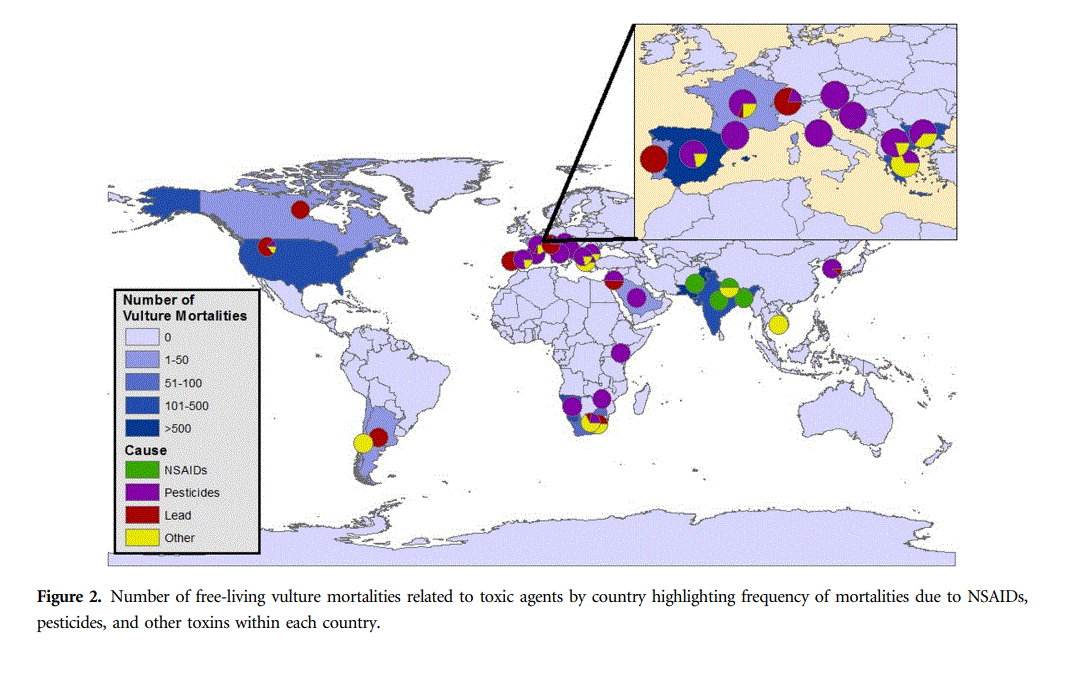Did you know?
As a lover of all creatures that fly—well almost all—vultures have been near and dear to my heart for decades. These amazing animals, with 7 species found in the New World and 16 in the Old World, are busy taking care of our environments. They may best be described as the garbage collectors of the planet. They eat dead animals (carrion), helping to keep our environments clean. This valuable ecosystem service is often overlooked by people who might think less of these rather strange looking birds. However, without their freely offered “garbage” services, environments would be less clean. And, this may lead to human diseases increasing in areas with fewer vultures.
Vultures are in trouble
Unfortunately, vultures are in trouble.
The best example of their troubles began in the 1990s with the near extinction of 3 species of vultures in India (https://en.wikipedia.org/wiki/Indian_vulture_crisis). The population crashes of these Gyps ssp. was later found to be caused by the veterinary drug called Diclofenac. (Yes, this is the same Diclofenac you might use for your arthritis!) Amazing detective work unraveled that Diclofenac use in cattle, and vulture consumption of dead cattle that had Diclofenac still in their system, was leading to kidney failure in vultures that ate the cattle. This kidney failure led to the near extinction of 3 species of vultures. The story didn’t end there. What followed was a rise in human rabies cases! With all that carrion (dead cows) in the environment now available since the vultures (garbage collectors) were gone, feral dog numbers increased. Dog-human interactions also increased, and bingo, so did rabies in humans. This is a fascinating One Health story for another day, but also the major driver of why our team decided to explore the causes of morbidity and mortality (sickness and death) of free-living vultures.
Understanding threats to vultures
The result is our recently published EcoHealth paper, A Global Review of Causes of Morbidity and Mortality in Free-Living Vultures by Ives et al. (2022). We performed a systematic review of published studies of free-living vulture health from 1969 – 2018. What we found was striking, if not somewhat predictable. Top causes of death were from toxins including Diclofenac (60%), but especially lead and pesticides, followed by traumatic injuries (49%), mostly from collisions with urban infrastructure and gunshot. Additionally, we were able to see where the majority of studies have been conducted, and therefore the areas of the world where we need to increase efforts.
Final thought
You may think, “why should I care about vulture health?” Everyone should care about vulture health and survival! Vultures play a vital role in keeping our environments clean, thus regulating scavenger populations and preventing the spread of disease. They are also incredibly cool creatures that fly.
Citation
Ives, A.M., Brenn-White, M., Buckley, J.Y., Kendall, C.J., Wilton, S., and Deem, S.L. 2022. A Global Review of Causes of Morbidity and Mortality in Free-Living Vultures. EcoHealth. https://doi.org/10.1007/s10393-021-01573-5




